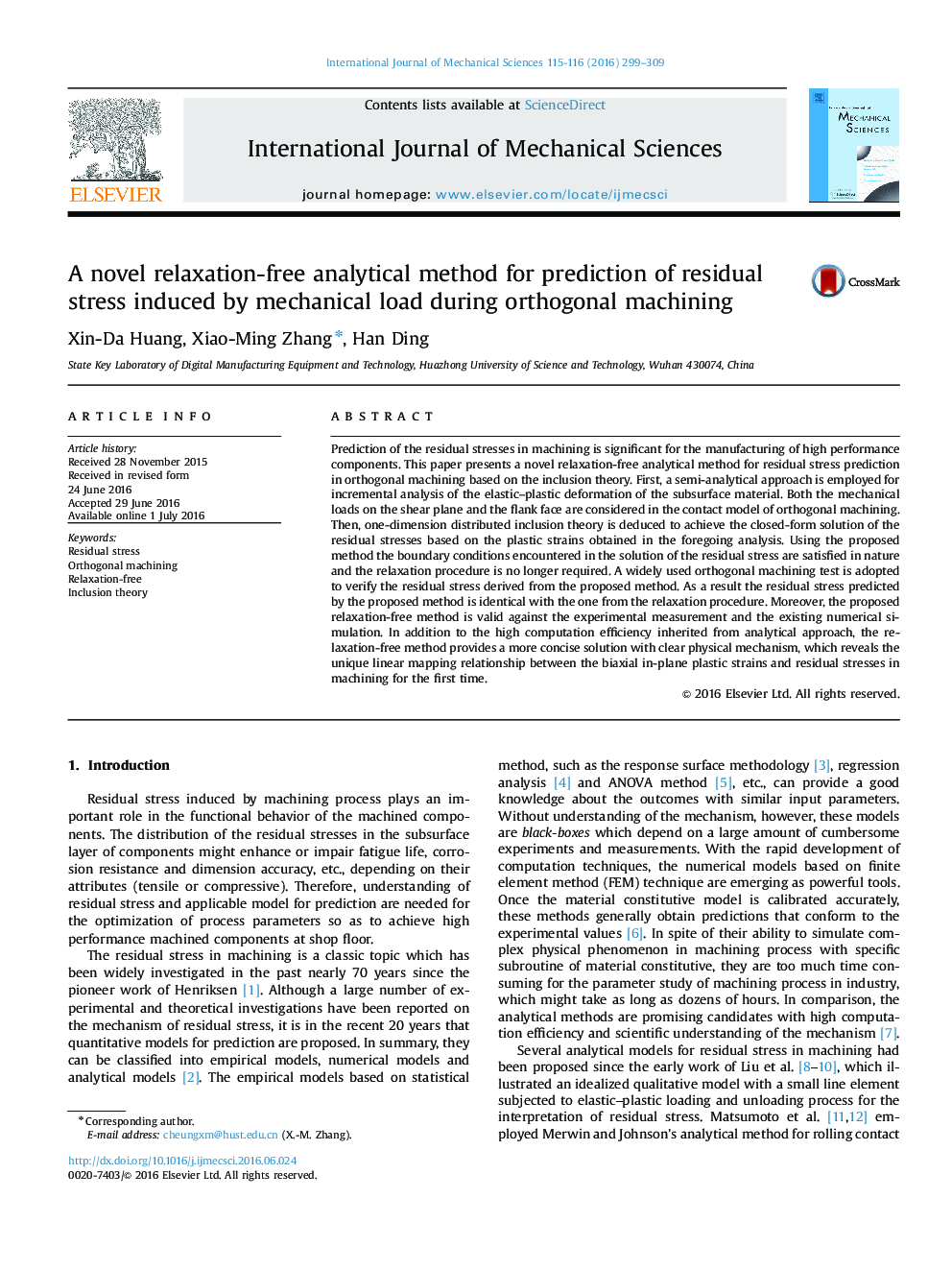| Article ID | Journal | Published Year | Pages | File Type |
|---|---|---|---|---|
| 779962 | International Journal of Mechanical Sciences | 2016 | 11 Pages |
Abstract
Prediction of the residual stresses in machining is significant for the manufacturing of high performance components. This paper presents a novel relaxation-free analytical method for residual stress prediction in orthogonal machining based on the inclusion theory. First, a semi-analytical approach is employed for incremental analysis of the elastic-plastic deformation of the subsurface material. Both the mechanical loads on the shear plane and the flank face are considered in the contact model of orthogonal machining. Then, one-dimension distributed inclusion theory is deduced to achieve the closed-form solution of the residual stresses based on the plastic strains obtained in the foregoing analysis. Using the proposed method the boundary conditions encountered in the solution of the residual stress are satisfied in nature and the relaxation procedure is no longer required. A widely used orthogonal machining test is adopted to verify the residual stress derived from the proposed method. As a result the residual stress predicted by the proposed method is identical with the one from the relaxation procedure. Moreover, the proposed relaxation-free method is valid against the experimental measurement and the existing numerical simulation. In addition to the high computation efficiency inherited from analytical approach, the relaxation-free method provides a more concise solution with clear physical mechanism, which reveals the unique linear mapping relationship between the biaxial in-plane plastic strains and residual stresses in machining for the first time.
Related Topics
Physical Sciences and Engineering
Engineering
Mechanical Engineering
Authors
Xin-Da Huang, Xiao-Ming Zhang, Han Ding,
